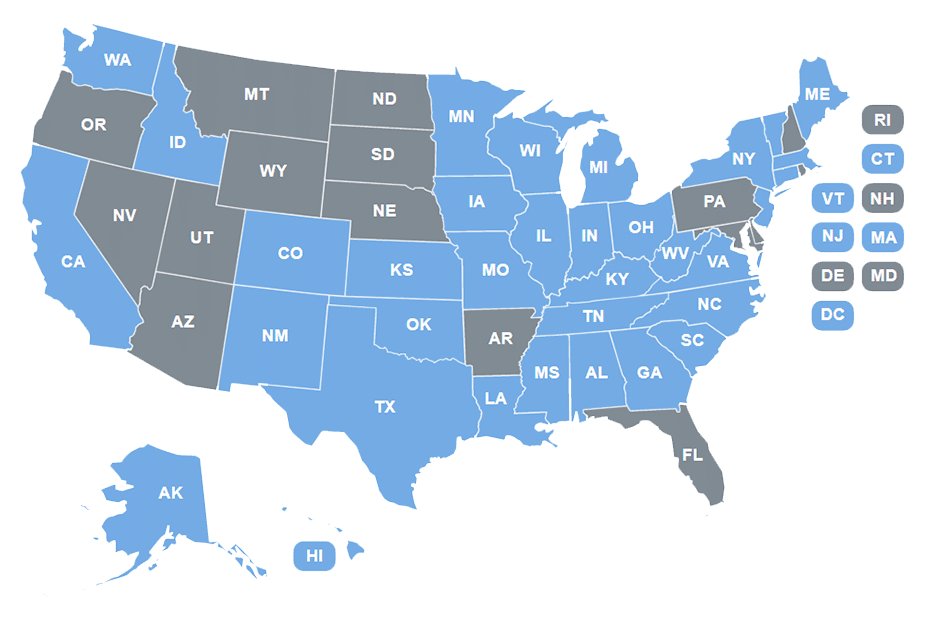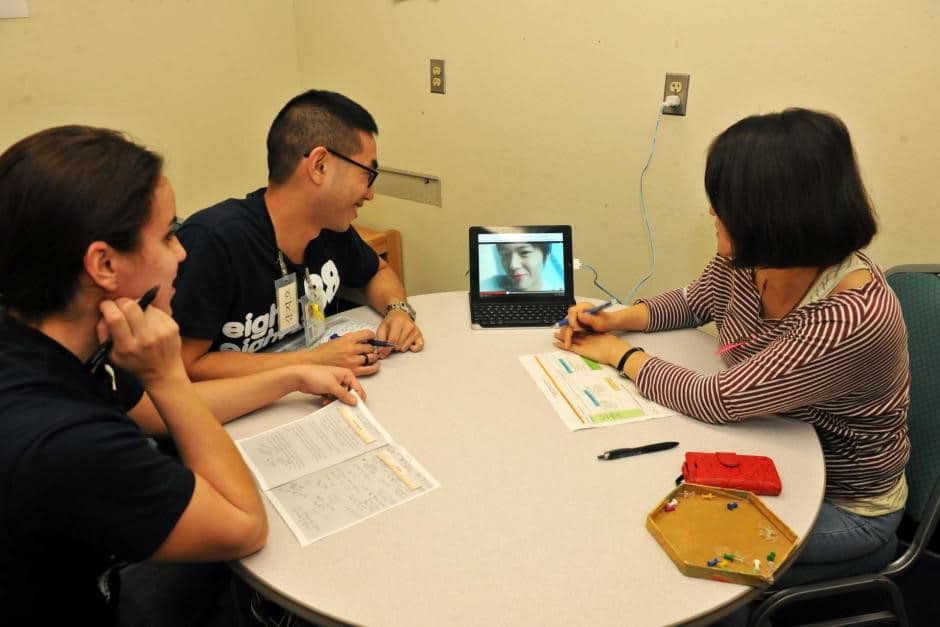15 Jun2020
By Katrina Norfleet
 To address this trying time for education in general, and teacher education specifically, the Graduate School of Education at AACTE member institution Touro College will present a virtual discussion with leaders in the profession as they contemplate what comes after sheltering in place for teacher preparation.
To address this trying time for education in general, and teacher education specifically, the Graduate School of Education at AACTE member institution Touro College will present a virtual discussion with leaders in the profession as they contemplate what comes after sheltering in place for teacher preparation.
AACTE Board member Jacob Easley II, dean of the Touro College’s Graduate School of Education, will moderate the session. Panelists include Judy Beck, president of the Association of Teacher Educators and dean of the School of Education, University of South Carolina; past AACTE Board Chair Wanda Blanche J. Blanchett, Graduate School of Education
Wanda J. Blanchett, former AACTE board chair, Graduate School of Education, Rutgers University; and Rene Antrop-Gonzales, incoming dean and professor, School of Education, SUNY New Paltz.
RSVP to join the webinar, “What’s Next? Teacher Education Post Coronavirus,” on Thursday, June 18, 3:30-4:45 p.m. EST.
28 May2020
By Paul Floeckher
This article originally appeared on the Kennesaw State University news site and is reprinted with permission.
The Bagwell College of Education’s mixed-reality avatar lab simulates a multitude of situations that teachers can experience, but Kennesaw State faculty probably didn’t envision that one of those scenarios would be providing field experience for teacher candidates during a real-life pandemic.
After universities and PK-12 school systems throughout Georgia transitioned from classroom courses to remote learning last month, the Bagwell College and the Department of Inclusive Education configured the avatar lab for remote access. Unable to be in their actual classrooms, student teachers and master’s candidates have been utilizing the avatar lab online to simulate teaching to a group of students.
“Our teacher candidates are able to take the lesson that they were supposed to teach in the real classroom and do it in our avatar lab, from the comfort of their home,” said Kate Zimmer, an associate professor of special education and the director of the avatar lab. “By no means are we saying that the lab should replace field experience, but, especially in times like these, it definitely makes a difference and helps prepare the best teacher candidates we can.”

26 May2020
AACTE Responds to COVID-19
By Ward Cummings
 As part of its continued efforts to inform members about the latest developments regarding educator preparation programs (EPPs) in light of COVID-19, AACTE has updated its Policy Tracker Map to reflect recent changes in EPP-specific state guidance and recommendations. These changes include guidance analysis of 12 new states, specifically Arkansas, Delaware, Florida, Maryland, New Hampshire, Rhode Island, Pennsylvania, Arizona, Nevada, South Dakota, North Dakota, and Wyoming. We have also updated data for New Jersey, which recently issued new guidance waiving edTPA.
As part of its continued efforts to inform members about the latest developments regarding educator preparation programs (EPPs) in light of COVID-19, AACTE has updated its Policy Tracker Map to reflect recent changes in EPP-specific state guidance and recommendations. These changes include guidance analysis of 12 new states, specifically Arkansas, Delaware, Florida, Maryland, New Hampshire, Rhode Island, Pennsylvania, Arizona, Nevada, South Dakota, North Dakota, and Wyoming. We have also updated data for New Jersey, which recently issued new guidance waiving edTPA.
In the coming weeks and months, as agency guidance is supplemented by the supporting instructions and recommendations of other state entities, such as the legislature and regulatory bodies, the information and features of this interactive map will grow to accommodate those developments.
26 May2020
By Jane E. West
This blog post is written by AACTE consultant Jane West and is intended to provide updated information. The views expressed in this post do not necessarily reflect the views of AACTE.
How Will the Senate Respond to the House Passed $3 Trillion HEROES Act?
Last week the House passed its follow up to the $2 trillion CARES Act by adopting the HEROES Act— the next COVID-19 relief bill. The Senate does not appear to be in a hurry to act and has clearly articulated different priorities from those in the HEROES Act.
Educators and their congressional allies are weighing in for a strong infusion of cash for education in the next bill. In the House, Reps. Tlaib (D-MI), Hayes (D-CT) and Pressley (D-MA) are circulating a letter to their colleagues that requests $305 billion be targeted to K-12 education in the next COVID-19 bill. In comparison, the HEROES Act targets $58 billion to K-12 education. Many education organizations are supporting their request, including the National Education Association, American Federation of Teachers, and AASA: The School Superintendents Association.
On the higher education side, almost 80 education organizations have requested that the maximum for the Pell Grant be doubled, anticipating that students will be facing unprecedented struggles when starting the new academic year and beyond.
21 May2020
Experts discuss emergency waivers and their potential impact
By Stacia Cedillo
This article originally appeared on the Education Writers Association website and is reprinted with permission.

Each year, hundreds of thousands of new teachers are licensed in the United States. With the shuttering of schools and colleges due to the coronavirus pandemic, states are using emergency waivers to certify teacher candidates who are unable to complete preparation requirements such as coursework, student teaching, and certification exams.
Along with these swift changes come new questions about the teacher workforce and what will happen to the educator pipeline in the midst of a public health emergency and economic recession.
18 May2020
AACTE Responds to COVID-19
By Jane E. West
This blog post is written by AACTE consultant Jane West and is intended to provide updated information. The views expressed in this post do not necessarily reflect the views of AACTE.
Speaker Pelosi Unveils Next COVID-19 Relief Bill with a $3 Trillion Price Tag
The House of Representatives is in town and scheduled to vote late today on the next COVID-19 relief bill—dubbed the HEROES Act. Considered by many to be a messaging bill and the wish list of Speaker Pelosi (D-CA), it is not expected to receive Republican support. Even so, a number of progressive Democrats believe it does not have enough relief and may vote no. Likewise, there may well be a few Republicans who cross over to support it.
The 1815 page bill includes almost $1 trillion to support state and local governments and another $100 billion for education. Key features include the following:
15 May2020
Revolutionizing Education
By Jenny Muñiz
Earlier this year, Colorado lawmakers proposed a bill that would task their state’s Department of Education and Department of Higher Education with devising strategies for recruiting more teachers of color. Almost half of Colorado students are students of color, while teachers of color comprise about 10 % of all teachers. This mismatch is even wider in Denver Public Schools, the largest district in the state, where 75 % of students are students of color but the share of teachers of color is a mere 27%.
Worse still, enrollment data from Colorado’s teacher preparation programs suggests these numbers are unlikely to inch up anytime soon: The state has not seen growth in the number of Black candidates enrolling in teacher programs in almost a decade, and its seen only a modest increase in the number of Latinx candidates. In the 2017–18 school year, only about 28 % of those enrolled in teacher preparation programs identified as people of color.
Research shows that teachers of color can boost the achievement of students of color—a needed skill in a state where these students face wide gaps in academic performance. However, it is increasingly clear that preparation programs will need to be more forward-thinking if they are going to usher more aspiring teachers of color into the profession.
14 May2020
By Deborah Koolbeck

On May 6, 2020, the U.S Department of Education, under the leadership of Secretary Betsy DeVos, released the final rule for the Title IX regulations—also known as the final regulation. Built from the law that prohibits sexual discrimination at federally funded institutions, this update to the Code of Federal Regulations (CFR) has been contentious since the process started in November 2018. AACTE joined nearly 60 organizations on a letter led by the American Council on Education pointing out challenges and questions with the proposal during the public comment period in January 2019. Overall, the Department received over 124,000 public comments that were reviewed prior to the determination of the final rule.
The review and update of the regulations were initiated due to a response to guidance issued by the Obama Administration in 2011 leading to an increase in civil lawsuits, mostly from men who were accused of sexual misconduct alleging their rights were violated under the Title IX procedures. The updated regulations are purported to be fair to both the accuser and the accused.
11 May2020
By Ward Cummings

Due to the effects of COVID-19, many states have issued guidance or directives to assist educator preparation programs (EPPs) and teacher candidates in their response to the associated academic challenges and interruptions. In an effort to track relevant changes in state policies and practices, AACTE has developed a new interactive map designed to highlight and present such changes, with a focus on four key categories:
- initial licensure and certification
- clinical experiences
- hiring and induction
- state standards and other program requirements
04 May2020
By Jane E. West
This blog post is written by AACTE consultant Jane West and is intended to provide updated information. The views expressed in this post do not necessarily reflect the views of AACTE.
Senate to Reconvene May 4 as House Stays Home—Mostly
Congress has been on recess for a month leaving a scant few Members in town to hold down the fort. This week both the House and Senate announced they would return full force on May 4, but only a day later, House Majority Leader Steny Hoyer (D-MD) retracted the announcement for the House saying the Capitol physician advised against it. Members are still regrouping from the whiplash announcement and retraction—assessing the political fallout—but relieved about the health risks had they returned.
Sen. McConnell (R-KY), Senate Majority Leader, has not backed down despite push back from several Senators, and the full Senate is scheduled to be in town May 4. They will likely be in town until May 22, recessing for Memorial Day. Many unanswered questions remain. Will staff be required to report to work? Will social distancing be enforced? What are the cleaning procedures for office spaces and the Capitol? Will masks and gloves be worn? We shall see.
27 Apr2020
By Jane E. West
 This blog post is written by AACTE consultant Jane West and is intended to provide updated information. The views expressed in this post do not necessarily reflect the views of AACTE.
This blog post is written by AACTE consultant Jane West and is intended to provide updated information. The views expressed in this post do not necessarily reflect the views of AACTE.
This Week in COVID-19 Relief Funding
Today the President will sign the fourth COVID-19 relief bill. Passed by a voice vote in the Senate and a live vote in the House of 388-5, the bill adds $484 billion bill to COVID relief funding. Funds are to be distributed as follows:
- $321 billion for the Paycheck Protection Program (small business fund which ran out of money last week
- $60 billion in economic disaster loans for small businesses
- $75 billion for emergency relief for hospitals
- $25 billion for more coronavirus testing
21 Apr2020
By Jane E. West

This blog post is written by AACTE consultant Jane West and is intended to provide updated information. The views expressed in this post do not necessarily reflect the views of AACTE.
Implementation of the $2 Trillion CARES Act: Where Do We Stand?
It’s hard to keep track of the swirl of information about federal efforts to address the pandemic in the education space. Here is my best shot at a high-level summary of where things stand:
- It’s been three weeks since the $2 trillion third package of funding (COVID-3 or the CARES Act) became law
- The bill includes the following and distribution to date is as noted:
- $13.5 billion for elementary and secondary education
- No announced process or timeline for distribution yet
- $14.25 billion for higher education
- $6.3 billion is being distributed to IHE’s for students who need emergency financial aid and have expenses related to the pandemic
- $3 billion for a Governor’s Emergency Education Relief Fund
- fund now available for distribution
17 Apr2020
By Deborah Koolbeck

On April 13, 2020, the U.S. Department of Education via the Federal Register announced that applications are available for the FY20 grant cycle of the Supporting Effective Educator Development (SEED) grant program. With the reauthorization of the Elementary and Secondary Education Act, this program was expanded to include institutions of higher education as participants in the program. The Department estimates that $22 million will be available for these 3-year grants.
The SEED grant program’s main goal is to increase the number of highly effective educators by supporting the implementation of evidence-based practices that prepare, develop, or enhance the skills of educators. This program is designed to encourage the use of rigorous evidence in selecting and implementing opportunities to support educator’s development across the continuum of their careers, including preparation, recruitment, evaluation, professional learning, and leadership development.
15 Apr2020
By Holly Lane
In response to the need to support teachers in their rapid shift to online instruction, the University of Florida Literacy Institute has created online resources to help ease that transition. UFLI realized that they could take their extensive body of research, successful data-driven interventions, and carefully vetted resources, and create virtual versions of the face-to-face work they have always done.
The outcome? Two new online “resource hubs”: one for parents to learn more about how to support their children’s literacy development, and one for teachers to discover effective, easy-to-use methods for providing reading instruction and intervention in an online delivery model.
We developed our Dyslexia Resource Hub in the fall and had plans to create additional resource hubs for parents and for teachers, but this situation gave us the impetus to push fast forward and get it done very quickly. UFLI faculty, staff, and graduate students worked tirelessly to make both hubs launch-ready as school closures made them more necessary than ever.
09 Apr2020
AACTE Responds to COVID-19
By University at Albany

The University at Albany School of Education, in order to support a greater need for remote learning in K-12 education, on Wednesday launched the website Remote Education Resource Center, or RemoteEd.
The site, which has immediate critical value in the current coronavirus crises, will not only help teachers incorporate remote learning tools into their classes, but also foster a community of practice in the Capital Region. RemoteEd had its unveiling on Wednesday during a webinar with area teachers.
“The School of Education at the University at Albany has a deep purpose and commitment to assist the special, urgent needs of teachers, leaders and schools to support student learning in this current dynamic time,” said Jason Lane, interim dean of the School. “Our faculty and graduate students have worked tirelessly to bring this resource to reality. We’re all in this together to support our children and students.”
 To address this trying time for education in general, and teacher education specifically, the Graduate School of Education at AACTE member institution Touro College will present a virtual discussion with leaders in the profession as they contemplate what comes after sheltering in place for teacher preparation.
To address this trying time for education in general, and teacher education specifically, the Graduate School of Education at AACTE member institution Touro College will present a virtual discussion with leaders in the profession as they contemplate what comes after sheltering in place for teacher preparation.






 As part of its continued efforts to inform members about the latest developments regarding educator preparation programs (EPPs) in light of COVID-19, AACTE has updated its
As part of its continued efforts to inform members about the latest developments regarding educator preparation programs (EPPs) in light of COVID-19, AACTE has updated its 

 This blog post is written by AACTE consultant Jane West and is intended to provide updated information. The views expressed in this post do not necessarily reflect the views of AACTE.
This blog post is written by AACTE consultant Jane West and is intended to provide updated information. The views expressed in this post do not necessarily reflect the views of AACTE.

